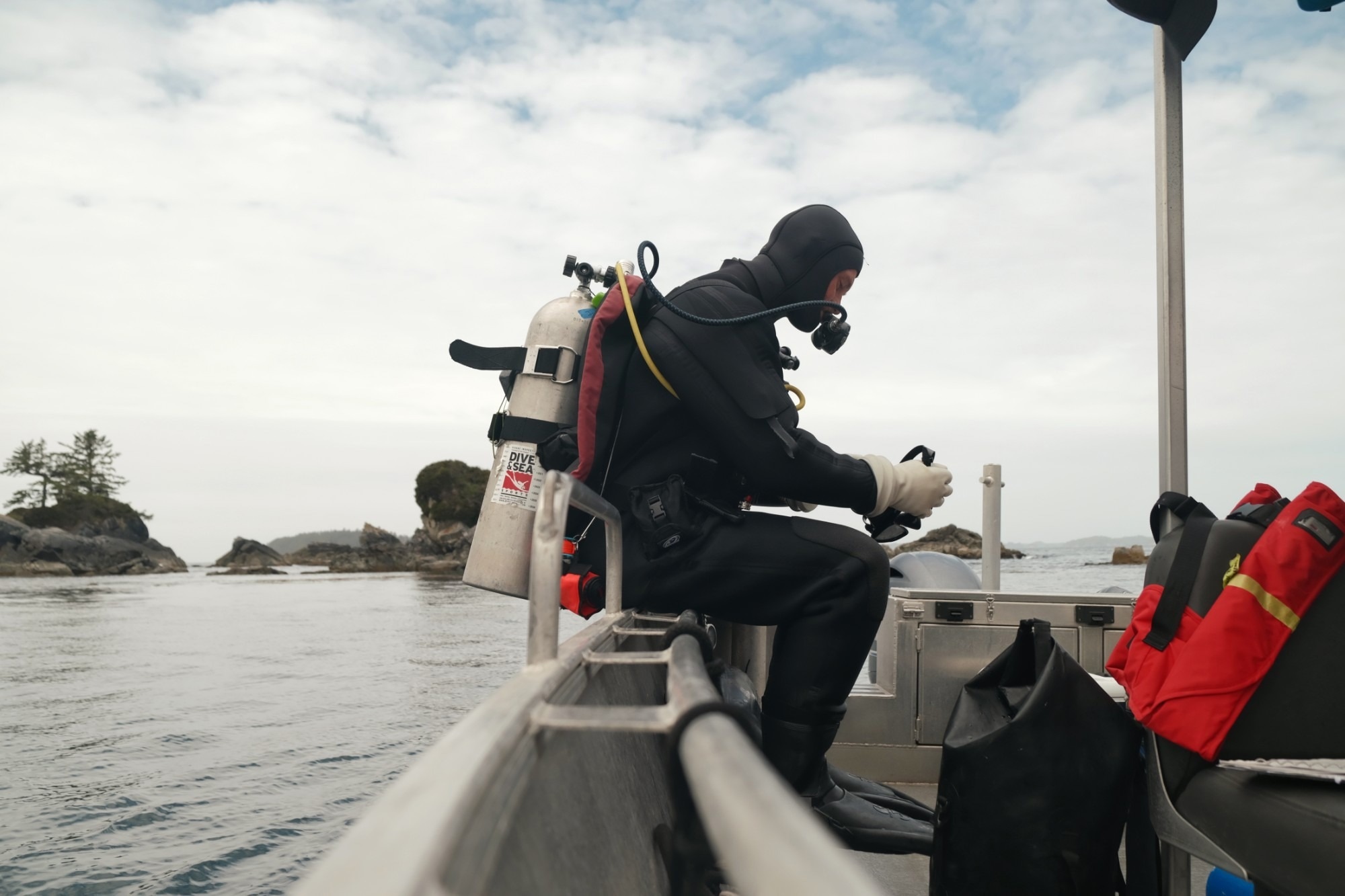The Canadian military’s attempts to lessen the effects of underwater noise pollution on species during training exercises in the Pacific Ocean are examined in a recent study by researchers at Simon Fraser University.
 Kieran Cox, Liber Ero and NSERC Fellow from Simon Fraser University prepares to dive into kelp forests. Image Credit: Simon Fraser University
Kieran Cox, Liber Ero and NSERC Fellow from Simon Fraser University prepares to dive into kelp forests. Image Credit: Simon Fraser University
The study, which was published in Marine Policy on December 1st, 2023, targets a report that was commissioned by the Canadian Department of National Defence (DND) to lessen the effects of noise pollution caused by military small-arms munitions training within the 330 square kilometer “Whiskey Hotel,” which is located in the Strait of Juan de Fuca off the coast of British Columbia.
After agreeing to halt drills in the region for three years, the military ordered an investigation into the threat that underwater and in-air training sounds pose to marine animals, including the critically endangered Southern Resident Killer Whales.
After reviewing the findings, the military said it would want to get back to training at the Whiskey Hotel and would put mitigation avoidance zones, cease-fire protocols, and marine species awareness training into place to lessen the effects of noise pollution.
Researchers discovered significant shortcomings in the SFU-led study assessing the original report, even though they still view the report and the mitigation actions as a positive step forward.
For instance, the assessment ignored the considerable noise produced by the military vessels themselves and instead focused solely on the noise pollution caused by small arms firing. The study ignored the effects noise pollution has on the surrounding populations of fish, including salmon, and invertebrates, in favor of concentrating only on marine animals.
More can be done in the future to safeguard fish and invertebrates from noise pollution, according to researchers, particularly as the federal government continues to build a national strategy to control and mitigate the consequences of underwater vessel noise on marine species and their ecosystems.
It is important to be clear: this report is a step in the right direction. The government is developing an ocean noise strategy, so legislation on this topic is currently lacking, and activities that pertain to national security will be largely exempt from regulations. Commissioning an investigation and implementing mitigation measures is a conservation success story, one that I am keen to see this improved upon and used in the future.
Kieran Cox, Study Lead Author and Postdoctoral Fellow, Department of Biological Sciences, Simon Fraser University
He concluded, “I am hopeful that this framework can be adapted to consider all marine life and sources of noise pollution noise, which is needed as we move towards an Ocean Noise Strategy that can inform the coming decades.”
Journal Reference:
Cox, K. D, et. al. (2023) Military training in the Canadian Pacific: Taking aim at critical habitat or sufficient mitigation of noise pollution impacts? Marine Policy. doi:10.1016/j.marpol.2023.105945.